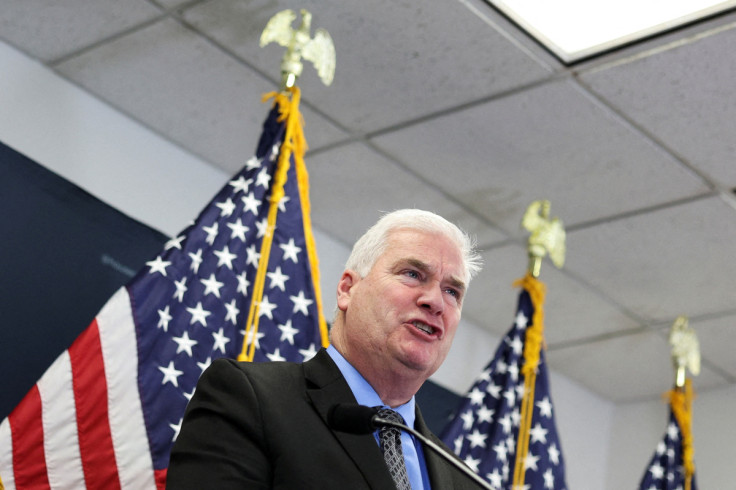House Republicans Rule Out Another Stopgap Spending Bill

The U.S. House of Representatives will not pass another temporary spending bill to avert a partial government shutdown on March 1, according to Representative Tom Emmer, the Republican majority whip.
The move raises concerns about a shutdown, given the limited time remaining for Congress to finalize the long-delayed fiscal 2024 spending plan.
"You are not going to get another continuing resolution out of our conference," Emmer told Bloomberg Television.
The statement suggests House Republicans won't accept another short-term extension while negotiations on the fiscal 2024 budget remain ongoing.
Current funding for federal agencies expires in two installments: March 1 and March 8. However, the House departs for a recess on February 28, leaving limited time for talks before the first deadline. Further complicating matters, the Senate will be preoccupied with the impeachment trial of Homeland Security Secretary Alejandro Mayorkas next week.
Despite the tight timeline, Emmer expressed cautious optimism about avoiding a shutdown.
"When we come back, the key is what are the packages put on the floor," he emphasized, suggesting that deals could be reached before the first deadline.
Bloomberg further reports that Emmer criticized the Biden administration for refusing to hold direct talks with Speaker Mike Johnson (R-LA) on border security, a condition Johnson set for approving additional Ukraine aid.
The White House remains wary of such a meeting, citing Johnson's past inconsistencies on immigration and foreign aid.
Emmer suggested potential compromises, including limiting Ukraine aid to prioritize military assistance and striking a more conservative border deal with Biden than the bipartisan Senate proposal recently unveiled.
"We are ready and willing to work to solve these problems," Emmer concluded, leaving the question of whether Congress can overcome its differences and avert a government shutdown hanging in the balance.
In addition, Republicans have sought policy changes on issues such as banning abortion drugs and making changes to immigration, facing resistance from Democrats.
The coming weeks will be crucial in determining whether Congress can reach an agreement on spending and avert a government shutdown.
The potential consequences of a shutdown, including disruption to essential services and economic hardship, will likely weigh heavily on lawmakers as they navigate these negotiations. A government shutdown assumes more significance in a election year and could have an impact on the U.S. presidential elections to be held in November 2024.
© Copyright IBTimes 2025. All rights reserved.






















